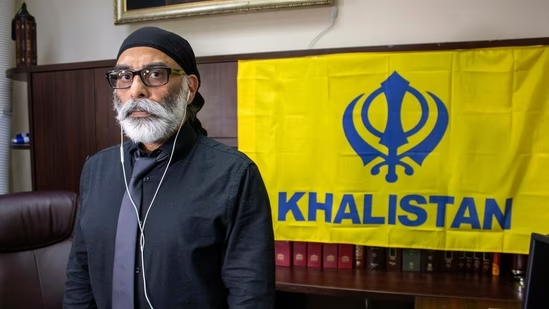On Monday, the Principal Deputy National Security Advisor of the United States, Jon Finer, led a delegation to India, addressing the alleged plot to assassinate Sikh separatist leader Gurpatwant Singh Pannun on US soil. The White House reported Mr. Finer's acknowledgment of New Delhi's formation of an investigative panel to probe the foiled plot.
In a statement, the White House emphasized the importance of holding accountable anyone found responsible for the alleged lethal plotting in the United States. Last week, the US Justice Department accused an Indian government official of directing an unsuccessful plot to assassinate Pannun, the leader of banned Sikhs for Justice. Charges were announced against Nikhil Gupta, an Indian national, for conspiracy to commit murder for hire in connection with the attempted murder.
Gupta is alleged to have collaborated with an Indian government employee to recruit and pay an assassin for the plot. In response, India's Ministry of External Affairs expressed concern, dissociating itself from the implicated government official and asserting that such actions go against government policy. India announced a formal investigation into the concerns raised by the US and pledged necessary follow-up action based on the findings of the panel established on November 18.
This incident follows similar allegations made by Canada two months ago, linking Indian agents to the murder of Khalistani terrorist leader Hardeep Singh Nijjar in a Vancouver suburb—an assertion India has rejected. High-level discussions between US and Indian officials, including President Joe Biden, National Security Adviser Jake Sullivan, CIA Director Bill Burns, and Secretary of State Antony Blinken, have taken place in recent weeks.
The situation is delicate for both India and the US as they strive to strengthen ties amid concerns about an ascendant China perceived as a threat to both democracies. The Indian government has long expressed concerns about Sikh separatist groups outside India, viewing them as security threats. These groups advocate for Khalistan, an independent Sikh state to be carved out of India.
During his visit, Jon Finer met with Indian Foreign Minister S Jaishankar and National Security Adviser Ajit Doval. Discussions also covered developments in the Middle East, including the Israel-Hamas conflict, plans for a post-war Gaza, and recent attacks on commercial vessels in the Red Sea, as stated by the White House on Monday.

Comments
Post a Comment